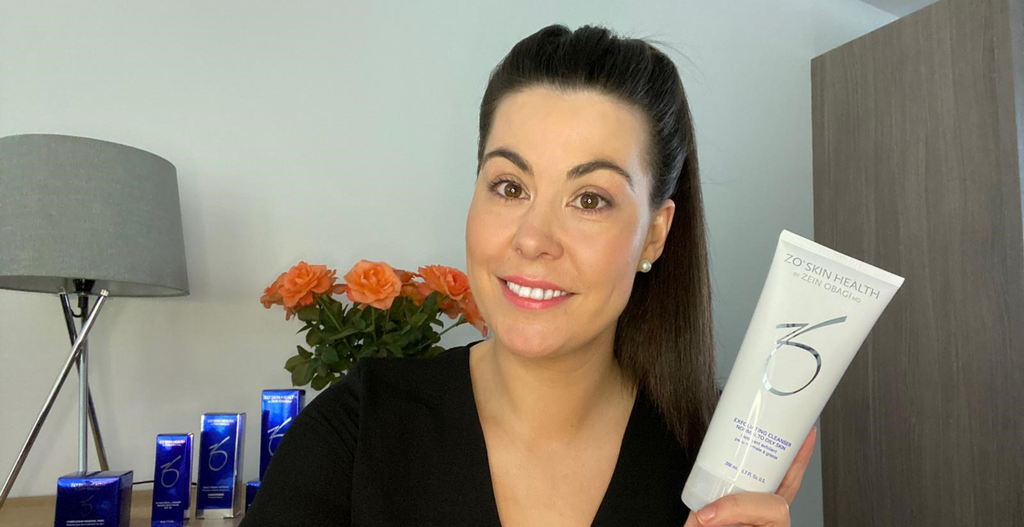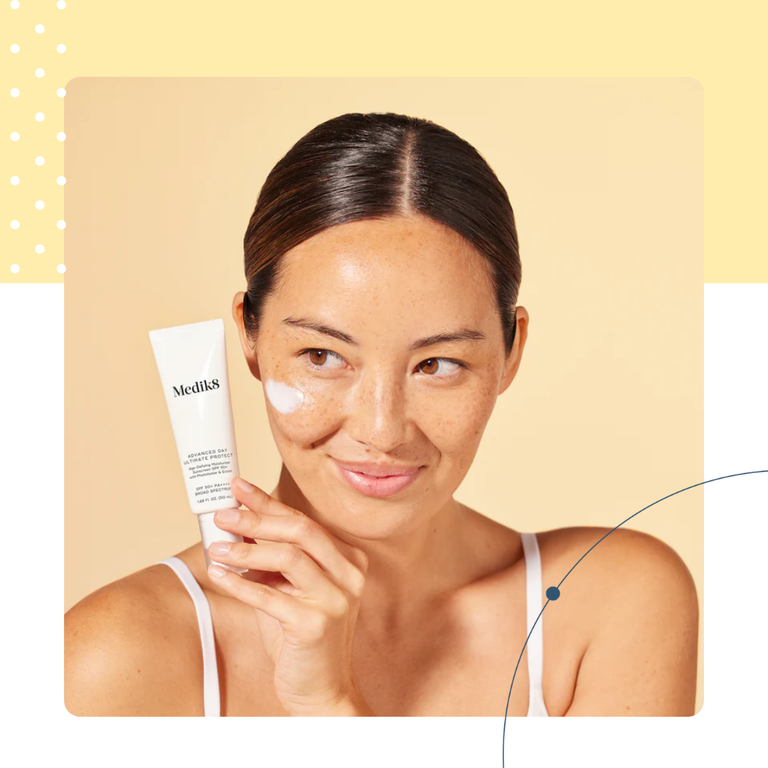If you’ve been searching for skincare products for acne and oily skin, you may have come across salicylic acid. It’s a common ingredient that’s found in everything from cleansers to masks, toners to spot treatments, but what exactly is it and is it right for you?
Here at Face Dr, we have skincare experts with decades of experience in treating clients and working with ingredients like salicylic acid. So to help, we’ve broken down exactly what this ingredient is, how it works, and whether you should start using it.
Here’s what we’ll cover:
- What is salicylic acid?
- How does salicylic acid work?
- What does salicylic acid do for the skin?
- Is salicylic acid right for me?
- How do you use salicylic acid?
- What are the side effects of salicylic acid?
- Products to try with salicylic acid
Interested in other skincare ingredients? We’ve covered azelaic acid, niacinamide and Matrixyl 3000, among many more. If you'd rather skip reading and book a free online skincare consultation with a Skin Expert now, you can do so by clicking the button below. Here at Face Dr, we offer free consultations with skincare product recommendations tailored to your skin.
What is salicylic acid?

Salicylic acid is a type of BHA, a beta-hydroxy acid, that’s derived from Willow tree bark. It’s been used in medicine for thousands of years—there’s even some evidence that the ancient Egyptians used it to treat fevers.
Along with its medicinal properties, it has plenty of benefits for the skin too. It dissolves dead skin cells and oil, which clog pores. This helps to clear up acne and reduce oiliness, so it’s most often used to treat acne and blemishes, but it can also be used to treat psoriasis, hyperpigmentation and even dandruff.
You can buy salicylic acid over the counter in a variety of products like cleansers, toners, masks and serums, which usually have 0.5% to 2% salicylic acid. You can also get professional procedures which use a much higher percentage, often 20 to 30%.
How does salicylic acid work?
So, we know it can help treat acne, spots and other blemishes, but how exactly does it work?
You can think of salicylic acid as a deep clean for the skin, going beneath the surface and clearing out dirt, oil and dead skin cells.
Unlike AHAs, salicylic acid is oil-soluble, which means it penetrates deeper into the skin to work on the layers beneath the surface. The acidic properties dissolve the bonds that hold dead skin cells together making them easier to remove. It also breaks down excess oil and anything else clogging up pores.
What does salicylic acid do for the skin?

By breaking unclogging pores and breaking down dead skin cells and oil, we can start to see plenty of benefits on the surface.
These include:
- Acne and spots clear up, and it’s harder for new ones to form
- Skin looks less oily and shinier
- Skin looks brighter and healthier as it's exfoliated
- Hyperpigmentation is lightened as discoloured skin cells are removed
- Skin tone looks more even as blemishes clear up
- Redness clears up as it’s an anti-inflammatory
Is salicylic acid right for me?
Salicylic acid is great for oily and acne-prone skin, but it can also work for other skin types, too. However, if you have dry or sensitive skin, consider speaking with a skin expert first to see if salicylic acid could work for you and to get the right dosage, as it could dry the skin out further and cause irritation.
You should avoid salicylic acid if:
- You have eczema
- You have broken skin
- You’re on blood thinners
- You’re allergic to aspirin
If you’re already using products with retinol or other acid products, you should proceed with caution or, better yet, speak with a professional first, as the combination could over-exfoliate and irritate the skin.
How do you use salicylic acid?

How you use salicylic acid all depends on which product you buy. Lower dosages, such as those in cleansers and toners, are usually designed for everyday use—or even twice daily, morning and night. Stronger dosages on the other hand, like in masks or at-home peels, are usually used just once or twice a week. It’s recommended to start slowly and use a new product once or twice, so your skin gets used to it. Then, if there’s no irritation, you can start using the product more as part of your regular routine.
You can also use salicylic acid products as and when you need them. So, for example, if you have an acne breakout, you can use a product to help clear things up.
In-clinic procedures are usually a course of four to eight sessions over several weeks, and these are performed by a professional.
To get bespoke recommendations, book a skincare consultation with an expert who can recommend a dosage and how often you should be using salicylic acid.
What are the side effects of salicylic acid?
As with everything, there are some side effects, risks and dangers you should be aware of before using salicylic acid.
Salicylic acid may cause irritation and dry out the skin, causing it to become red and flaky. To avoid this, be sure to do a patch test first to ensure you won’t react. Start with a mild product and use it sparingly at first.
Salicylic acid may also increase your skin’s sensitivity to the sun, so be sure to use sunscreen and avoid excess sun exposure.
Overuse can lead to irritation, peeling and even salicylate poisoning, so it’s important to follow the instructions of any products you use and speak to a skincare expert if you’ve got any concerns.
Products to try with salicylic acid
Ready to try salicylic acid for yourself to target acne, oiliness and blemishes? Here are a few recommended products to get you started:
Face Dr top picks:
You could also try:
Need more advice?

If you think salicylic acid could help with a skin concern you have but you’re not sure, why not book a skincare consultation to get an expert opinion?
At Face Dr, we offer free online skincare consultations where a skin expert can analyse your skin and recommend whether you should try this ingredient, which strength of salicylic acid to start with and which products are best for you.
On a 30-minute video call, we’ll analyse your skin to give you tailor-made recommendations and even a full routine to help tackle your exact concerns. Plus, if there’s a better ingredient out there for you than salicylic acid, we’ll let you know and recommend the best products.
No matter your skin goals, one of our friendly experts can give you the exact steps to take to reach them.








